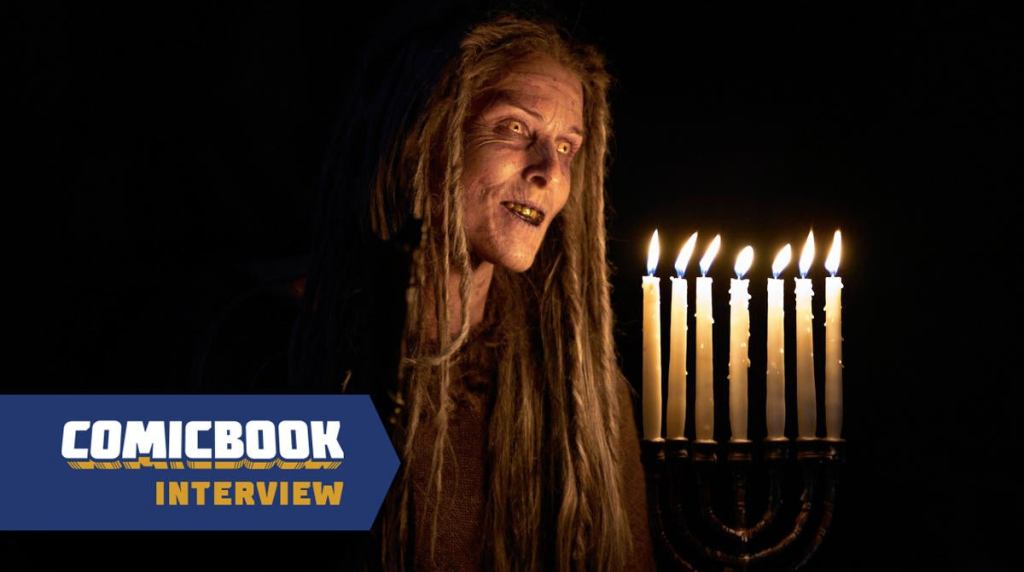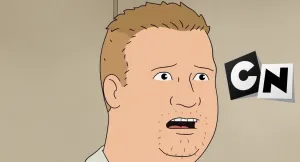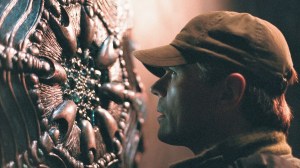Ghosts and demons have been brought to life in countless ways in cinema over the decades, and while there’s a lot of different takes on the figures, following the success of The Exorcist, they often embrace Christian mythology due to audience familiarity with these concepts. In the new horror film Lullaby, the unsettling elements of the supernatural look to other corners of religion to tell a terrifying tale, with director John R. Leonetti finding new ways to unnerve audiences from new perspectives using lesser-known entities. Lullaby is set to land in select theaters and On Demand on December 16th.
Videos by ComicBook.com
The film follows a new mother who discovers a lullaby in an ancient book and regards the song as a blessing. But her world transforms into a nightmare when the lullaby brings forth the ancient demon Lilith.
ComicBook.com caught up with Leonetti to talk his interest in the project, the evolution of the story, and his other projects.

ComicBook.com: You have such a long legacy in the horror genre in various capacities working on horror films. Given how much you’ve already accomplished, in general, what excites you about wanting to join any new horror project? More specifically, what about Lullaby really spoke to you?
John R. Leonetti: Good question. I can answer that. The good news and the bad news is that, once I directed Annabelle after being a shooter for James [Wan], who is a master of horror, it did so well and it was so fun to do that. All of a sudden, I’m a horror director and that’s all anybody can think about you as. That’s the good, and the bad, to be honest.
I love crafting horror movies as a cinematographer, as a director, because you get to use, I think, more tools in the toolbox of filmmaking. Because it’s not just developing the characters, which is super important, but it’s also being able to get under the audience’s skin and create suspense and make people’s hair stand up on the back of their neck or whatever it is, and so it’s just fun.
I was never even a horror buff, really, to be honest. I like horror, I like it all. Previous to the horror movies, I’d done all kinds of movies as a cinematographer. So I think that Lullaby, first of all, I was looking for other things. Matter of fact, I was involved in another film with Alcon that was, it was a ghost story, it was a thriller and it was a ghost story. It’s high concept, really interesting, very classy. Not that Lullaby isn’t, I don’t mean that, but we were in development and then this script came along and I read it, and I was so enticed by Lilith, first of all, and her mythology, which I didn’t know anything about. It wasn’t Judeo-Christian supernatural stuff, which has been so typical. It was ancient Hebrew. She was the first woman and the first women’s libber. She’s not in the Torah, but she is in the Talmud, her mythology. I didn’t know any of this.
I was raised Catholic, but I also was around a lot of Jewish people, and I played little league. I was the only Catholic kid in an all-Jewish little league. I love the Jewish, I love everybody. But it was just interesting to me. Then the whole thing about the lullaby is it’s an integrated tool to f-ck with the audience, if you do it, so to create that was super fun. Then to create the book and all these things that were challenging, yet really interesting.
You also bring up a great point that I was curious about, is you have films like The Exorcist and The Omen, they helped establish in horror, we’re dealing with Catholic mythology, Christian mythology, and that is just the norm that has been set with most horror movies. Lullaby deals with Hebrew texts and characters introduced there. Do you feel that changes the approach to the visual language of everything, or is it more just in the narrative, it creates a more enriching overall experience as opposed to the specific technical aspects of bringing it to life?
I think, actually, it’s the second of what you said. It’s a new richness and it allowed us to delve into mythology in a way that Jewish people understand, but the rest of the world doesn’t. Yet it’s very relatable once you get the intercutting between Vivian and Rachel and Rabinowitz, and Johnny in the synagogue, and being able to really, I think, in an engaging way, hopefully, let people know about what went on. Also, if you think about it, it’s previous to when Jesus was born, so there’s more depth to it, and it goes all the way back to Adam and Eve and before that. I think it’s richer. I think it has the same potential for messing with people and creeping them out and creating suspense, but it was just enticing to me, and so I fell in love with it. I really did.
So much of the film’s effectiveness hinges on your two lead performers. What did you feel they brought to the project? You bring them on knowing they’re going to handle the material well and in an engaging way, but what do you feel they actually brought that took you by surprise, that maybe changed what you had anticipated or elevated in a way that was unexpected?
That’s an interesting question because Oona [Chaplin], she’s a very good actress, and I saw her in this scene in Game of Thrones, and it was very intense, but somehow she also seemed like you could believe that she was from Jewish heritage, because of her makeup, and that struck a chord to me. I really wasn’t sure about her nurturing ability as a mother, but she is a very, very nice person. She loves kids, and that, I think, worked out well, and I didn’t know if it would, but I had this sense about her in Hope.
In Rámon [Rodríguez], two things about Rámon. Number one, I think he’s a fabulous actor. He’s a very likable guy, and he’s amazing to work with. He’s just a sweetheart. But also, to go down the path of, in the story, he’s a convert. To go out there and have someone who would’ve come from a Catholic background, typically, in Latin heritage, convert to Judaism, is pretty cool. He easily filled that void. I think what happened with him specifically, and it’s wonderful, he actually took the character, and even the movie, I think, to another level.
He’s a director in his own right, and he’s a filmmaker, and he’s super smart, super talented, and he offered up things. He was so into learning the pronunciation and, really, in the scene where he and the crone go at it in the third act, he really helped make that scene a lot better, even than what I originally conceived it as, to be honest. Well, actually, in the original script, it was really intense, but we couldn’t afford to do what was there, because of budget and time. I just take my hat off to that guy. I admire him so much.
So you’ve worked on Annabelle, you’ve worked on things like Mortal Kombat and Child’s Play. There’s so many franchises that are now more popular than when you were first working on them. Is there a big franchise or project that you worked on earlier in your career that you feel like you have more to say or would like to come back to after your years away from it to tell more about those franchises?
That’s an interesting question. I have a deep appreciation for The Conjuring franchise because I just think it’s some of the best horror stuff around in a long time. I just believe that. It’s so well-rounded in so many ways, and there’s many reasons we could talk about that. But I don’t know. I cut my teeth in horror, really, on Tales from the Crypt, and that’s when I first became a DP. What I loved about those and what they taught me, it’d be fun to do those again.
They were anthologies that were based on comic books, and they allowed you to, because of the color that’s in comic books and how it’s just a step beyond reality, you could play with light and go deeper. But what I learned immediately in making those from the very first one I did with Walter Hill, is that you still have to ground it in reality. I think that that balance is something that I have carried through all the way through to now, and even with James Wan and meeting him and really even setting that really home in the Insidious series with him, it’s something that maybe that would be fun to do.
Lullaby is set to land in select theaters and On Demand on December 16th.
This interview has been edited for length and clarity. You can contact Patrick Cavanaugh directly on Twitter.








